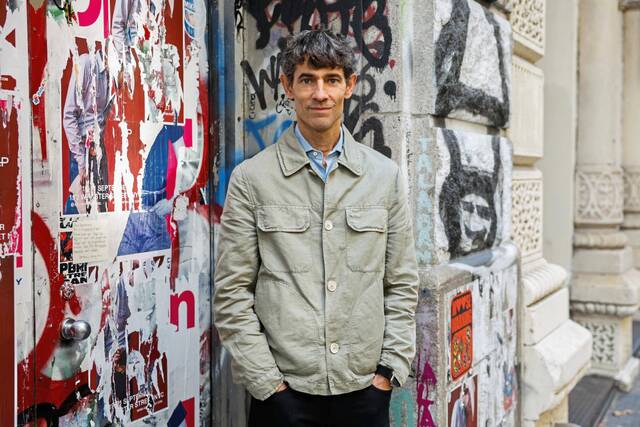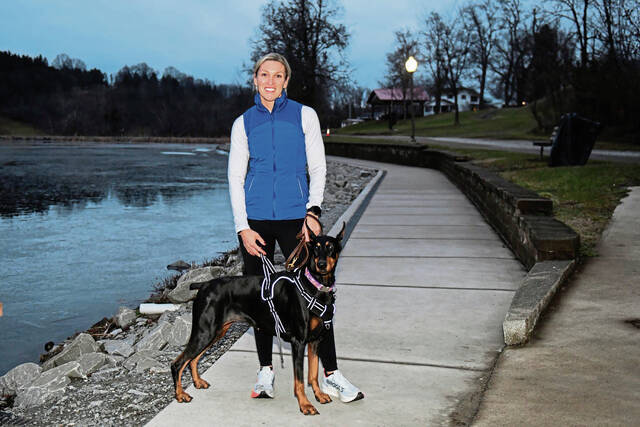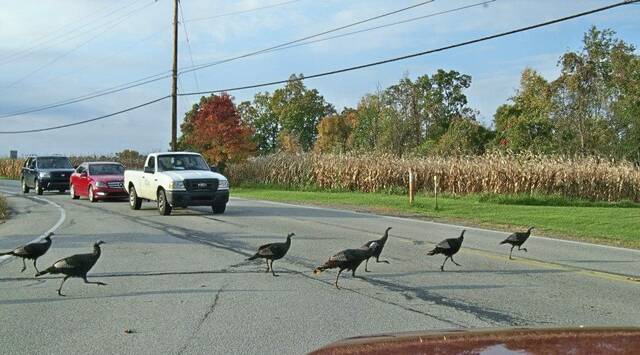When Nicholas Thompson isn’t busy overseeing The Atlantic magazine as CEO, he can often be found running to and from its lower Manhattan offices — or chasing records further afield. In 2019, he ran his fastest marathon in 2:29 and, in 2021, set the American record in the 50K for men aged 45 and over.
In his new book “The Running Ground,” Thompson reflects on his history with the sport and the lessons it’s taught him on and off the track. Speaking with Reuters ahead of the book’s Oct. 28 launch, Thompson discusses the global running boom, the physiological demands of the sport and why he’s grateful he didn’t run faster sooner.
The following conversation has been edited for length and clarity.
How did your father’s journey with running shape your early understanding of it?
My first introduction to running came really with his first intense running period (in) 1980-1981 — I was five, six years old. I didn’t know this then, but he was going through a lot of internal turmoil as he dealt with the realization that he was gay, as he struggled with alcoholism, as he dealt with the death of his own father. And these forces were propelling him into ever more intense training. And so I would go and run with him a mile, two miles.
In 1982, he ran the New York City Marathon. Watching him run that race, learning about his desire to break three hours (and) how close he came. He just missed it. He would often talk about how he had only been able to run quickly after his father died. He had drawn a very strong connection between his father and his running. The relationship between him and his father is very different from our relationship, but just the fact that he intricately tied his running with his father, I think, had a psychological effect on me.
You inherited that sub-three-hour goal. What did crossing that threshold mean to you?
I started running marathons in my 20s — first just on a lark, not really training. And I remember the first marathon I ran was in Rhode Island in 1997. I was 22, and I ran 3:18. I had tried to break three hours, which is six minutes and 51 seconds a mile. I had run that for maybe 20 miles and then completely bottomed out. I had a bunch more marathons in the next seven years where I tried to break three hours and couldn’t.
A couple of weeks after (running the) Boston Marathon — this is now the spring of 2005, so I’m 29 — I ran the Delaware Marathon and ran at 2:57. I just remember the elation when I did it and I crossed the barrier and thought, “Oh my god, this is the last time I’ll run a marathon.” My father was so proud. But then of course, a few months later, I ran 2:43 and then later in my life I ran much faster.
You write about your experience with thyroid cancer and the desire to reclaim the version of yourself that existed before you got sick. How did running help you navigate that identity shift?
When I had been running 3:06, it was very hard to imagine running 3:00. Once I was running 2:43, I was like, “Oh, I’m going to go to 2:20!” I just assumed the trajectory would continue.
And then I got sick. I went through grueling treatment. Most other cancers are worse — but mine was still scary. I was 30 years old at that point. It takes a year until I feel good again, and then another year to really get back to my fitness. And then I ran another 2:43.
Are there other versions of “Nick” that you’re chasing now?
I sometimes imagine what would my path have been in running if I had recognized the talent that I had earlier. I’m now 50 years old. I recognized when I was 30 that I had a lot of talent. I recognized when I was 44 that I had an immense amount of talent. What if I had realized that when I was 23? Would I have run much faster? Maybe. Would it have been better for my running? Almost certainly not.
There’s a real benefit to not going all out in your 20s because you wear your body down and, if you run an incredibly fast time and you meet your absolute peak, then you don’t have so many goals to pursue when you’re older. Like, it’s pretty fun in your 40s to be able to chase not just your best time for your age, but your best time overall. In some ways, I was lucky that it took a while for me to figure out how to do it.
How has your understanding of pain evolved through running?
I used to think that the reason you slow at the end of the race is because there are physiological things that happen — lactic acid builds up, your muscles tire, your body can no longer pump blood to your muscles. And then later on in life, I realized, no, actually, that’s not it.
I think a lot of very smart people think — and some studies show and I certainly believe — that what’s happening is your brain is essentially running a series of calculations and trying to determine whether it thinks you can sustain the pace that you are moving and the effort that you are putting forth for the period of time that it knows you have to do it … and it gets nervous. And so it starts to send pain signals to slow you down and to maintain homeostasis. A lot of learning to run fast is learning how to convince your brain that it will risk homeostasis just a little bit more and also convincing your brain that you can do it.
How do you do that?
The number one way to convince your brain that you can run 26 miles is to run 26 miles. Lots of runners hit the wall at mile 20, and there’s a physiological reason why. Your body burns carbohydrates as you run, (so) you’re going to start running low on carbohydrates at about mile 20. But the real reason why people hit the wall at mile 20 is because they’re told to just run 20 miles in training. And so they’ve never gone beyond it. It’s scary.
Really, if you eat a bunch of pasta before, you have a Gu (energy gel) or two during the race, you’re not going to run out of carbohydrates at mile 20. And so there’s this very complicated psychological game going on. And I’m not saying that pain is fake and that someone who hasn’t trained can go and run a 2:50 marathon tomorrow, right? What I am saying is that the essence of training is learning as best as possible to set your body’s thermostat a little bit higher and then to understand what happens when it starts to fire.
Has chasing ambitious goals in running changed your perception of what’s possible outside the sport?
One of the lessons in training is that you have to push yourself to a place where you’re uncomfortable because you have to train your brain to accept that new, uncomfortable place. I believe that running makes you more accustomed to putting yourself in that uncomfortable place and to not having a panic attack when you’re in an uncomfortable zone. And so maybe setting a big goal and running — trying to meet it, hitting it or not hitting it — makes it easier to go into that board meeting and makes it easier to respond calmly when you’re asked that really hard question when you’re doing an all-hands with staff. Maybe it gives you the space to think creatively about the next problem you have to solve.
Your father discovered running during the 1970s boom. Do you see echoes of that moment in today’s global running culture?
There’s definitely a resurgence, and there are definitely many more people doing it.
Today, part of (the resurgence) is cultural contagion. (It allows) you to step outside of this very online social media world. There’s probably not a person I know who doesn’t wish they spent less time on their phone. Running is a way to break out of that. It’s a way to really connect with people. It’s a way to connect with the outside world, and it’s a way to do it in a structured, beautiful way.
How do you feel about the rise of data-driven running, from GPS watches and heart rate monitors to AI-driven training apps?
One of the tensions in the book is between being data-driven and having a spiritual approach. When I’m running, I monitor my heart rate very carefully. I’ve gone on the track with power meters on my shoes so I can identify which shoe I’m most efficient in. I like to upload all the food I eat in advance of a race to ChatGPT and get dietary suggestions.
But if you just do that, you don’t get as much out of the sport as you can. You have to know how to turn it off. You look at the stars, you listen to the birds, you let your mind drift. If you’re focusing on every little detail all the time, eventually you’ll get burned out because you’re not getting the spiritual benefits from the sport.








